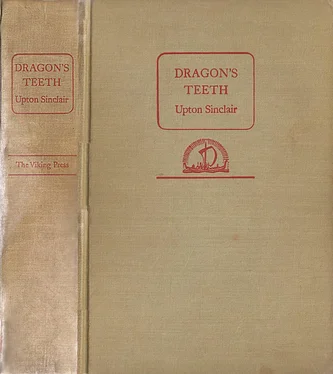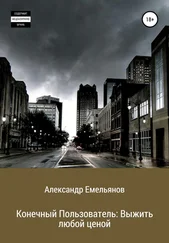Пользователь - o 3b3e7475144cf77c
Здесь есть возможность читать онлайн «Пользователь - o 3b3e7475144cf77c» весь текст электронной книги совершенно бесплатно (целиком полную версию без сокращений). В некоторых случаях можно слушать аудио, скачать через торрент в формате fb2 и присутствует краткое содержание. Жанр: Старинная литература, на русском языке. Описание произведения, (предисловие) а так же отзывы посетителей доступны на портале библиотеки ЛибКат.
- Название:o 3b3e7475144cf77c
- Автор:
- Жанр:
- Год:неизвестен
- ISBN:нет данных
- Рейтинг книги:4 / 5. Голосов: 1
-
Избранное:Добавить в избранное
- Отзывы:
-
Ваша оценка:
- 80
- 1
- 2
- 3
- 4
- 5
o 3b3e7475144cf77c: краткое содержание, описание и аннотация
Предлагаем к чтению аннотацию, описание, краткое содержание или предисловие (зависит от того, что написал сам автор книги «o 3b3e7475144cf77c»). Если вы не нашли необходимую информацию о книге — напишите в комментариях, мы постараемся отыскать её.
o 3b3e7475144cf77c — читать онлайн бесплатно полную книгу (весь текст) целиком
Ниже представлен текст книги, разбитый по страницам. Система сохранения места последней прочитанной страницы, позволяет с удобством читать онлайн бесплатно книгу «o 3b3e7475144cf77c», без необходимости каждый раз заново искать на чём Вы остановились. Поставьте закладку, и сможете в любой момент перейти на страницу, на которой закончили чтение.
Интервал:
Закладка:
been Mussolini, who had learned his trade editing the principal Socialist paper of the country. In
France no fewer than four premiers had begun their careers as ardent revolutionaries; the
newest of them was Pierre Laval, an innkeeper's son who had driven a one-horse omnibus for his
father, and while driving had read Socialist literature and learned how to get himself elected
mayor of his town.
For what had these men sold out their party and their cause? For cash? That played a part, of
course; a premier or prime minister got considerably more than a Socialist editor, and learned
to live on a more generous scale. But more important yet was power: the opportunity to
expand the personality, to impress the world, to be pictured and reported in the newspapers, to
hold the reins and guide the national omnibus. A thousand flatterers gather round the statesman,
to persuade him that he is indispensable to the country's welfare, that danger lies just ahead,
and that he alone can ride in the whirlwind and direct the storm.
Rick sent his friend a bunch of clippings, showing how the man who had once lost his seat in
the House of Commons for his convictions had now become the hero and darling of those who
had unseated him. The entire capitalist press had rallied behind him, praising his action as the
greatest of public services. "He will find that he is their prisoner," wrote Rick. "He can do
nothing but what they permit; he can have no career except by serving them."
Rick mailed this letter; but before the steamer reached New York, the cables brought word
that the prisoner of the Tories had failed. Britain was off the gold standard, and the pound
sterling had lost about twenty per cent of its value! It happened to be the twenty-first of
September, a notable day in Wall Street history, for it marked two years from the high point of
the big bull market. In those two years American securities had lost sixty per cent of their value;
and now came this staggering news, causing another drop! "Look where steel is now!" said
Lanny Budd to his father over the telephone.
XII
In the midst of this world chaos Pierre Laval, innkeeper's son, paid a visit to Germany to see
what could be done for that frantic government. The boy driver had grown up into a short,
stocky man with black hair always awry, with somber, rather piratical features and a thick
black mustache. He had made a lot of money, a tremendous aid to a political career. Of his
Socialist days he kept one souvenir: he always wore the little four-in-hand wash ties which
had been the fashion in his youth, and had been cheap because he could wash them himself. In
France it was well for a statesman to retain some proletarian eccentricity; that he sold out his
convictions mattered less, for the people had become so cynical about public men that they
hoped only to find the least dishonest.
With Laval traveled Aristide Briand, his Foreign Minister, another innkeeper's son and
another Socialist who had changed his mind. He had been a member of twenty-one cabinets—
which had required not a little flexibility. But he had labored with genuine conviction to make
peace between France and Germany. Now he was an old man, bowed and gray; the glorious
organ voice was broken and the strong heart was soon to break. He was still pleading for
peace, but he was the prisoner of Laval; and anyhow it was too late. Ancient hatreds and fears
had prevailed, and now Germany was in a desperate plight, and France in a worse one, but
couldn't realize it.
A curious whim of history: Briand meeting with Hindenburg! The washerwoman's child and
the East Prussian aristocrat; old-time enemies, now both nearing their graves; each thinking
about his country's safety, and helpless to secure it. Der alte Herr talking about the menace of
revolution in Germany; not the respectable kind which would put the Kaiser's sons on the
throne, but a dangerous gutter-revolution, an upsurge of the Lumpenproletariat, led by the
one-time odd-job man, the painter of picture postcards, the "Bohemian corporal" named
Schicklgruber. Briand demanding the dropping of the Austro-German customs-union project,
while Hindenburg pleaded for a chance for his country to sell goods.
Briand denouncing the Stahlhelm and the new pocket-battleships, while Hindenburg
complained that France was not keeping her promise to disarm. Hindenburg begging for
loans, while Briand explained that France had to keep her gold reserve as the last bulwark of
financial security in Europe. No, there wasn't much chance of their getting together; the only
one who could hope to profit by the visit was the aforesaid "Bohemian corporal," whose papers
were raving alike at the French visitors and at the German politicians who licked their boots to
no purpose.
Adolf Hitler Schicklgruber wouldn't attack Hindenburg, for Hindenburg was a monument, a
tradition, a living legend. The Nazi press would concentrate its venom upon the Chancellor, a
Catholic and leader of the Center party, guilty of the crime of signing the Young Plan which
sought to keep Germany in slavery until the year 1988. Now Hoover had granted a
moratorium, but there was no moratorium for Brüning, no let-up in the furious Nazi
campaign.
Lanny Budd knew about it, because Heinrich Jung had got his address, presumably from
Kurt, and continued to keep him supplied with literature. There was no one at Shore Acres who
could read it but Lanny himself; however, one didn't need to know German, one had only to
look at the headlines to know that it was sensational, and at the cartoons to know that it was a
propaganda of cruel and murderous hate. Cartoons of Jews as monsters with swollen noses
and bellies, of John Bull as a fat banker sucking the blood of German children, of Marianne as
a devouring harpy, of the Russian bear with a knife in his teeth and a bomb in each paw, of
Uncle Sam as a lean and sneering Shylock. Better to throw such stuff into the trash-basket
without taking off the wrappers.
But that wouldn't keep the evil flood from engulfing Germany, it wouldn't keep millions of
young people from absorbing a psychopath's view of the world. Lanny Budd, approaching his
thirty-second birthday, wondered if the time hadn't come to stop playing and find some job to
do. But he kept putting it off, because jobs were so scarce, and if you took one, you deprived
somebody else of it—someone who needed it much more than you!
10
Conscience Doth Make Cowards
I
OCTOBERand early November are the top of the year in the North Atlantic states. There is
plenty of sunshine, and the air is clear and bracing. A growing child can toddle about on lawns
and romp with dogs, carefully watched by a dependable head nurse. A young mother and
father can enjoy motoring and golf, or going into the city to attend art shows and theatrical
first nights. Irma had been taken to the museums as a child, but her memories of them were
vague. Now she would go with an expert of whom she was proud, and would put her mind on it
and try to learn what it was all about, so as not to have to sit with her mouth shut while he
and his intellectual friends voiced their ideas.
This pleasant time of year was chosen by Pierre Laval for a visit to Washington, but it wasn't
because of the climate. The Premier of France came because there were now only two entirely
solvent great nations in the world, and these two ought to understand and support each other.
Читать дальшеИнтервал:
Закладка:
Похожие книги на «o 3b3e7475144cf77c»
Представляем Вашему вниманию похожие книги на «o 3b3e7475144cf77c» списком для выбора. Мы отобрали схожую по названию и смыслу литературу в надежде предоставить читателям больше вариантов отыскать новые, интересные, ещё непрочитанные произведения.
Обсуждение, отзывы о книге «o 3b3e7475144cf77c» и просто собственные мнения читателей. Оставьте ваши комментарии, напишите, что Вы думаете о произведении, его смысле или главных героях. Укажите что конкретно понравилось, а что нет, и почему Вы так считаете.




